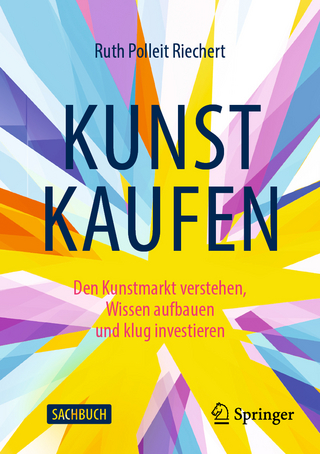The Authors
Günter Lueger looks for opportunities to do things in management differently. He specialises in designing and redesigning management instruments and paper work in companies in a solution-focused way. Innovations include Solution Focused Rating (SFR) and Solution-focused Management Instruments, like FMT, which allow more appreciative assessments and analysis in organisations (www.solutionmanagement.net, www.fit-management.at).
Hans-Peter Korn started to work as a scientist (PhD) in nuclear physics. He was then active in line- and project-management on different levels in power plant engineering, the financial industries, air transport industries and software engineering. Fascinated with systemic and solution-focused management in theory and practice, he started his own business as an OD- and PD-consultant (A href="solution-focused approach, solution-focused management, solution orientation, consulting, coaching, change management
The Solution-Focused Approach developed by Steve de Shazer and Insoo Kim Berg has been well established across many areas of society. In this book, the practical uses of solution-focused work in companies and management are shown. By means of conceptual contributions, as well as many case studies and projects in practice, current developments in Leadership, Marketing and Sales, Project Management, Work Design, Human Resources, Organisational Development and Learning, Training and Coaching, as well as Conflict Management are described. In addition, we also present empirical studies on the effect of solution-focused work in enterprises.
Günter Lueger looks for opportunities to do things in management differently. He specialises in designing and redesigning management instruments and paper work in companies in a solution-focused way. Innovations include Solution Focused Rating (SFR) and Solution-focused Management Instruments, like FMT, which allow more appreciative assessments and analysis in organisations (www.solutionmanagement.net, www.fit-management.at). / Hans-Peter Korn started to work as a scientist (PhD) in nuclear physics. He was then active in line- and project-management on different levels in power plant engineering, the financial industries, air transport industries and software engineering. Fascinated with systemic and solution-focused management in theory and practice, he started his own business as an OD- and PD-consultant (www.korn.ch).
1;Preface;6
2;Contents;8
3;Introduction;12
3.1;Solution-Focused Management: Towards a Theory of Positive Differences;12
3.1.1;Summary;12
3.1.2;A concept spreads in the world of consulting and management;12
3.1.3;Towards a Theory of Positive Differences;13
3.1.4;The Principle of "Finding Differences" - what is different when it works?;14
3.1.5;The Interactional View;17
3.1.6;Social Construction of Meaning;20
3.1.7;Solution-Focused Management;20
3.1.8;REFERENCES;24
4;Principles of Solution-Focused Work in Management and Organisations;26
4.1;Steve de Shazer - a Different Kind of Cleverness;28
4.2;Constructing the Roots of Solution-Focused Practices;30
4.2.1;Summary;30
4.2.2;Becoming a both/and practitioner;31
4.2.3;Complex response processes;32
4.2.4;Conclusions;36
4.2.5;REFERENCES;36
4.3;"SF-Topology": mapping manageable solution components & contexts-;38
4.3.1;Summary:;38
4.3.2;Maps of maps and territories-;38
4.3.3;What's "a solution"? The linear parts -;39
4.3.4;Model Questions (for the linear part);41
4.3.5;Multiple causes and effects;42
4.3.6;Solutions - the reciprocal part -;43
4.3.7;Towards the core topology: combining the parts -;45
4.3.8;CORFU-questions;47
4.3.9;Some examples of applications:;47
4.3.10;Possible extensions of the model:;48
4.3.11;Conclusion;49
4.3.12;REFERENCES;50
4.4;Solution-Focused Transverbality: How to keep the Essence of the Solution-Focused Approach by extending it;52
4.4.1;Summary:;52
4.4.2;I ];52
4.4.3;II ];53
4.4.4;III ];53
4.4.5;IV ];54
4.4.6;V ];55
4.4.7;VI ];55
4.4.8;VII ];55
4.4.9;VIII ];57
4.4.10;IX ];58
4.4.11;X ];58
4.4.12;XI ];58
4.4.13;XII ];59
4.4.14;XIII ];62
4.4.15;REFERENCES:;63
4.5;Creating Attraction - Is there a hidden secret in the miracle question?;66
4.5.1;Summary;66
4.5.2;1. Establishing attraction: Creating a preferred future by distinguishing outcome, effects and benefits.;66
4.5.3;2. Experiencing attraction: discovering our own influence and impact;69
4.5.4;3. The fuel of attraction: creating and maintaining positive" states of minds";70
4.5.5;4. Creating and maintaining a big attractive picture: bringing( a new) "sense" into our lives;70
4.5.6;REFERENCES;71
4.6;Solution-Focused Situation Management: Finding Cooperation Quickly;72
4.6.1;Summary;72
4.6.2;Introduction;72
4.6.3;Method;73
4.6.4;Ask for a behavioural description:;74
4.6.5;Discussion;75
4.6.6;Practical exercise;77
4.6.7;REFERENCES;77
4.7;If it doesn't work, be someone else!;78
4.7.1;Summary;78
4.7.2;The background;78
4.7.3;The Be-Do-Have Model;79
4.7.4;The practical part;82
4.7.5;Conclusion;85
4.7.6;REFERENCES;85
4.8;Learning how to act simply in complex situations;86
4.8.1;Summary;86
4.8.2;Introduction;86
4.8.3;Simplicity;86
4.8.4;How is simplicity useful - to managers?;87
4.8.5;Simplicity and Solutions Focus;87
4.8.6;Simplicity in action;88
4.8.7;How to be simple;89
4.8.8;Conveying simplicity;90
4.8.9;A functionalist perspective;91
4.8.10;Staying focused on what's wanted;92
4.8.11;A linguistic perspective;92
4.8.12;Our workshop;93
4.8.13;REFERENCES;93
4.9;Creating Comfort Places in Discomfort Situations;94
4.9.1;Introduction;94
4.9.2;REFERENCES:;97
5;Research on Effects of Solution-Focused Work in Organisations;98
5.1;Effects of SF training on productivity and leadership behaviour;100
5.1.1;Introduction;100
5.1.2;Evaluation and solution-focused training approach;100
5.1.3;Training goals;101
5.1.4;Structure and timetable of the leadership training and evaluation instruments;101
5.1.5;Results of the evaluation study;102
5.1.6;Conclusion;108
5.1.7;REFERENCES;108
5.2;Solution-Focused leadership: The range between theory and practical application;110
5.2.1;Summary;110
5.2.2;The claim to work in a solution-focused manner;110
5.2.3;Description of solution-focused leadership (in literature).;111
5.2.4;The initial Pilot Study;113
5.2.5;How managers describe solution focus;113
5.2.6;Where solution orientation shows up
Mark McKergow Steve de Shazer - a Different Kind of Cleverness (p. 17-18)
I first met Steve in 1994 at the Interaction View conference in Palo Alto, California. Although I did not know it at the time, this was a milestone event in the development of interactional and systemic ideas - one of the few times where the Mental Research Institute group (Paul Watzlawick, John Weakland and Dick Fisch amongst them) came together with the Solution-Focused therapy crowd led by Steve de Shazer and Insoo Kim Berg.
Steve and Insoo had trained at MRI two decades earlier, and had introduced new subtleties and simplicity into the MRI model - improvements, as they saw it. However, the link between the two centres was maintained by Steve's relationship with John Weakland, his supervisor and mentor. I next met Steve in London. My colleague Harry Norman had approached him for an interview, which we finally managed to do in London in 1995. I only discovered later that he was noted for not giving interviews, and that this was a great privilege. Steve was a keen brewer and beer drinker, and Harry had managed to interest him in sampling some 'medieval beer', brewed in tiny quantities to authentic recipes. This may have been the key to our success!
In the week before the interview Steve was leading a training in Solution-Focused Therapy, with a large audience (well over 100 people). Steve ambled onto the stage with a microphone, exhaled deeply as he always did before starting, and said..."So.. you'd better ask me some questions". A shiver went around the room. Surely he was the expert, and we wanted to be told what to do. Yet here he was, refusing to tell us. There was a silence. "Does it work with alcoholics?", came a question from the floor. "I don't know. Next question." "Does it work with personality disorders?" "I don't know. Next question." Several more diagnoses were mentioned, and each time the answer was the same - "I don't know".
I was amazed and disturbed. Here I was, keen to find out more about this fantastic approach to change, and the star performer was telling me he didn't know if it worked with alcoholics. What was going on? My discomfort was clearly shared by other audience members - after a while, some started to leave. "Can I see you ask the Miracle Question?" asked someone. Steve brightened up visibly. "Ah! Yes, I'm sure I can do that. Thanks for asking." We relaxed a little - at least he was going to do something.
As the session went on, I reflected on Steve's remarks of "I don't know". Surely this approach did work with many kinds of patient? Were there not studies to prove it? I came to realise that Steve, of course, knew all this perfectly well. Actually, he was showing us how to do Solution-Focused therapy in that moment, engaging what I have to come call his 'different kind of cleverness'. In order to answer the apparently simple question "Does it work with alcoholics?", one must accept two presuppositions. Firstly, there is such a thing as an alcoholic. And secondly, that it (the treatment in question) is replicable by anyone who applies it.
Let's look at the first one first - is there such a thing as an alcoholic? Clearly the word is used as if there was, but SF work is not based on diagnosis - the client's complaint is not relevant in determining what they want (the 'solution' in Solution Focus) and times when that happens already. Steve's work was part of the tradition that questions the value of diagnosis in any case, and even if an accurate assessment of the condition could be made, each one would want something different - leading to a course for treatment which would vary in each case. There was therefore no value in even considering whether the client was an 'alcoholic' or not. Part of his 'I don't know' was a rejection of this as a relevant term in his work. The other presupposition is in the 'Does it work' element. 'Does it work?' implies
| Reihe/Serie | Solution-Focused Management Series ; 1 |
|---|---|
| Sprache | englisch |
| Maße | 150 x 210 mm |
| Gewicht | 615 g |
| Themenwelt | Wirtschaft ► Betriebswirtschaft / Management |
| Schlagworte | Change Management • Coaching • Consulting • HC/Wirtschaft/Management • Lösungen • Management; Theorien/Konzepte/Strategien • solution-focused approach • solution-focused management • solution orientation |
| ISBN-10 | 3-86618-098-5 / 3866180985 |
| ISBN-13 | 978-3-86618-098-7 / 9783866180987 |
| Zustand | Neuware |
| Informationen gemäß Produktsicherheitsverordnung (GPSR) | |
| Haben Sie eine Frage zum Produkt? |
aus dem Bereich




